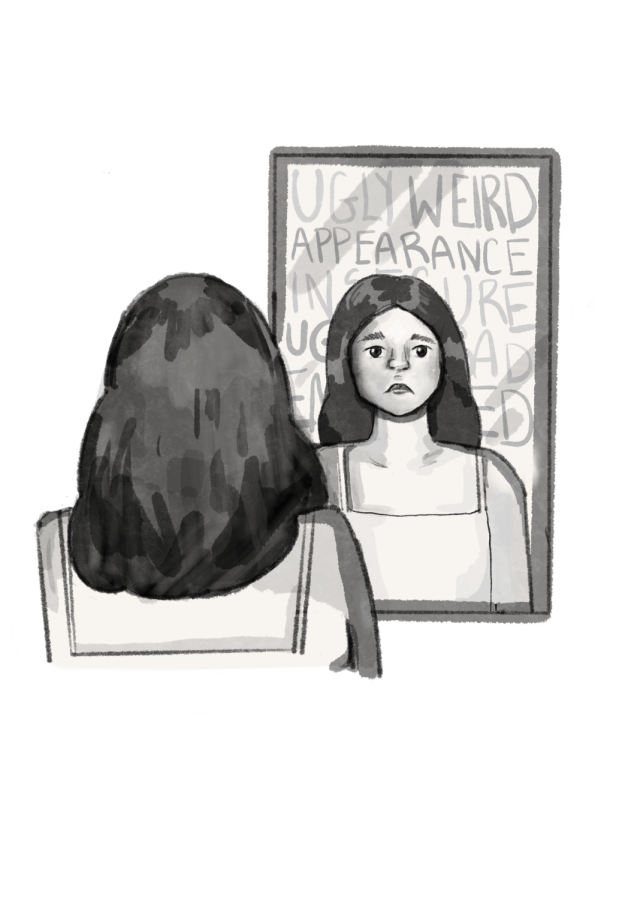CAMPUS: Many students repress various personal interests and hobbies, hopeful of fitting in and fearful of judgment from their peers
For many teenagers, the constant fears of peer pressure and judgment are always on their minds. Throughout high school, students are expected to fit in, whether it be through sports, academics or personal interests. For many, the pressure that comes from students judging each other brings an unwanted culture to the SCHS campus.
Freshman Satvik Vale realized that the constant pressures of fitting in leads students to feel insecure about expressing their own personalities.
“I feel like people, they (students) just want to be whatever everyone else is. They don’t truly want to be themselves because they’re afraid of being made fun of,” Vale said.
Additionally, sophomore Soham Kulkarni noticed that some forms of judgment between peers comes from students expecting others to remain the younger versions of themselves, stay involved in the same activities and maintain the same interests, with many students hesitant to accept change in those around them.
“I feel like there’s a certain stereotype where you’re forced to do something,” Kulkarni said. “Let’s say you did it in middle school. You are expected to be good at it, or to continue doing that activity.”
For some students, hobbies and special interests are one way to express themselves, but when they feel the pressure of peers around them, it can be difficult for them to appreciate themselves and feel passionate about their hobbies. Although this might be the case for some students, others have had positive experiences with peers encouraging them.
Freshman Anvee Sharma enjoys spending her free time playing the guitar and singing. After one of her first performances, SCHS’s Night of Acoustics, a school event for students to showcase their musical talents, Sharma was met with encouraging words and support from her family and friends.
“I’d say after the performance, it definitely gave me a boost of confidence,” Sharma said. “When my friends and my parents came up to me and they told me how I did good, that made me feel better about myself.”
Sharma enjoys sharing her interests with others. However, she does not like when the conversations steer toward being competitive, or when students brag about their achievements.
“For some activities, it’s just not like that. It’s not a race. It’s not a game,” Sharma said. “It’s just something that you like to do, and when people keep on bringing (up) their own accomplishments, then it gets really disheartening.”
Freshman Daniela Rosales discovered anime and K-pop over the pandemic, which allowed her to find people who share her enthusiasm. She appreciates the people she has met through common interests since she has been able to express herself and her passion around them.
“I can find people with the same interest as me, and we get to bond over shows,” Rosales said. “Now, I get to find my people that I share common interests with, and I think that’s really cool.”
Rosales feels that her friends and the people around her allow her to express her affection for her hobbies.
“If I had friends who didn’t like any of that stuff, I feel like I couldn’t really express or be excited over something because they don’t get what’s happening in the show, or they don’t really understand why I like it so much,” Rosales said.
Junior Ruhi Batchu found that when students are more open-minded and supportive of each other, it allows those around them to have a voice and enjoy their lives by doing what makes them the most happy.
“Just starting up a conversation on it to show your interest regardless of whether you share this hobby or not (is helpful) because it makes people feel more positive,” Batchu said.
Vale advised that others should respect their peers’ hobbies, interests and passions in hopes of changing the judgmental culture on campus.
“I think students can show more respect for one another and respect other people’s decisions in what they do in life and not give comments about it,” Vale said. “Just let them do them and you do you.”
Kulkarni believes that some judgment can come from peers connecting students to who they were in the past and how their interests, hobbies and characteristics are now.
“I feel like everyone should recognize that they shouldn’t put any expectations on anyone, no matter how they’ve been in the past because people change and people’s situations change,” Kulkarni said.
For Vale, however, he feels the opinions of other peers do not affect his actions or the amount of time he spends doing activities he enjoys.
“I know in my heart that I’m passionate about it (hobbies), so I don’t really care what other people think because it’s something that I enjoy, and I don’t need other people to know that I enjoy it,” Vale said.


